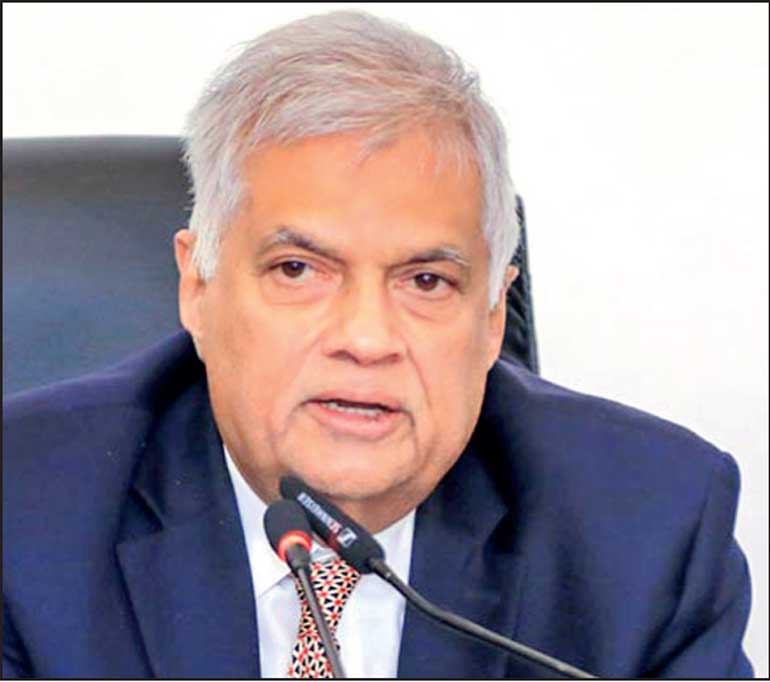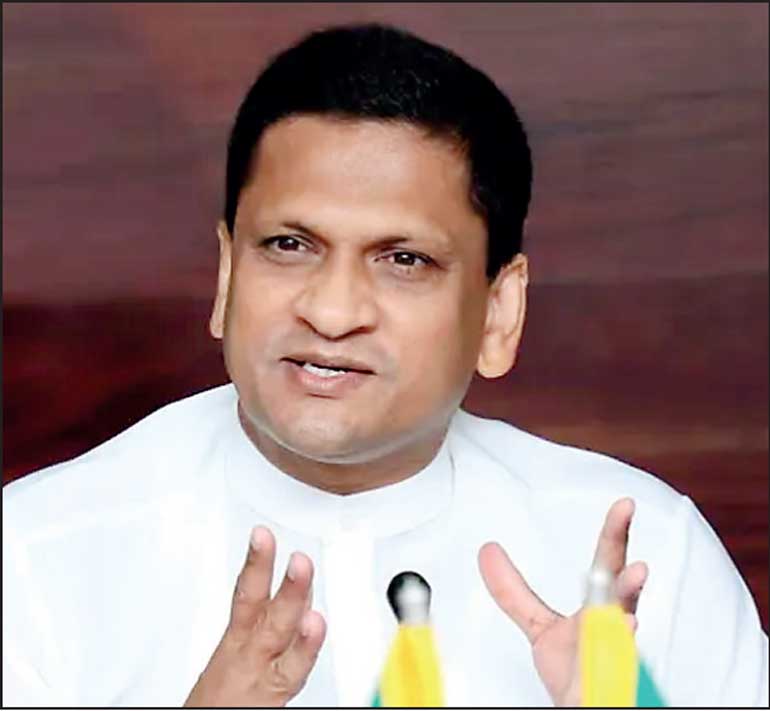Wednesday Feb 18, 2026
Wednesday Feb 18, 2026
Wednesday, 3 September 2025 00:24 - - {{hitsCtrl.values.hits}}

Former President Ranil Wickremesinghe

Former Parliamentarian Nimal Lanza
 Social media is an indicator of “public opinion.” The quotation marks are there to indicate the imperfection of the indicator, privileging the most shrill and polarising voices. But it’s an indicator nevertheless, one that cannot be ignored.
Social media is an indicator of “public opinion.” The quotation marks are there to indicate the imperfection of the indicator, privileging the most shrill and polarising voices. But it’s an indicator nevertheless, one that cannot be ignored.
I could see that I was not winning popularity contests by pointing to the procedural flaws in the arrest of President Wickremesinghe. But the reactions reached a new level when I reposted a statement that former parliamentarian Nimal Lanza had been remanded for an alleged assault in 2006. Now the mobs were beginning to form. Fake expressions of disappointment about how I had fallen from my pedestal began to appear.
Rule of Law
In both cases, my actions were being interpreted as support for the remandee. In their eyes, one cannot oppose an unfair procedure without at the same time taking a position on the substance of the charge. To say that the Friday afternoon arrest of President Wickremesinghe on charges that required the Magistrate to give bail only after recording “exceptional circumstances” appeared politically motivated is not to take a position on whether ex-presidents should be held accountable or whether the expenditure incurred in 2023 was justified. To question the remand of a former parliamentarian on what appear to be frivolous grounds 19 years after the fact is not to write him a character certificate.
If one is committed to the Rule of Law, as I am, one must condemn procedurally incorrect acts by political authorities and even by political judges. I had many differences of opinion with Dr. P.B. Jayasundara while he was a trusted economic advisor to the President and I was Director General of Telecommunications in 1998-99. But that did not stop me from speaking and writing publicly about the unjust decision taken against him by Sarath Nanda Silva when he was Chief Justice. That I had direct experience of problematic policies he advanced did not stop me from defending him against the arbitrary and capricious decisions of a Chief Justice.
I have no evidence of the guilt or innocence of Nimal Lanza on the assault or any other malfeasance he is alleged to have committed. But in light of the egregious politicisation of the investigatory and prosecutorial functions, arrest after 19 years does appear to be outside the norm.
My recollection is that criminal offences other than murder and treason cannot be prosecuted after 20 years. Taking up Lanza’s case months before the statute of limitations bars prosecution may be justified if other “cold cases” are also being taken up at the same time. If not, a reasonable argument may be raised that this too is an abuse of prosecutorial discretion.
In any case, why remand him? The purpose of remand is to ensure the accused attends the hearings and does not interfere with the investigation. Are they still investigating a 19-year-old assault? Did they resuscitate the case without evidence? Is this another case of punishment by remand?
The mindset problem
I have always felt that lurking underneath our modern exteriors is a Kandyan peasant from the 17th Century. We do not value the rule of law and other niceties. If the King decides to mete out punishment to one of his subjects, we accept it unquestioningly. If it is against a person we do not like, we may even cheer.
The performance of the Sri Lanka Police and the AG’s Department on criminal matters is miserable. Their conviction rate is around 4-6%. In addition, the courts are extremely slow. This has led to a situation where the prosecutors use remand as the punishment. Wherever possible, they charge people under provisions that constrain the grant of bail, such as the ICCPR Act or the Offences against Public Property Act. The principle of bail is the rule; remand is the exception is followed in the breach.
The fact that our prisons are over-capacity hellholes does not appear to prevent anyone from shovelling more presumed-not-guilty citizens into them. Close to 70% of prisoners are pre-trial detainees.
The Kandyan peasant’s mindset is the best explanation I have of the excessive use of placing people in remand custody and the glee with which remand decisions are treated by many. When, following law and with the aid of lawyers and sureties, those in remand get themselves released on bail the reaction is little different from that for an acquittal. In the minds of many members of the public and the media, remand was the punishment. Being released on bail is acquittal.
Some argue that judges should adhere to the principle that bail is the rule and remand is the exception. Others place hope in an independent prosecutor’s office that is shielded from political influence. Both are not likely to happen given our Kandyan peasant mindsets. That is why I have begun to advocate the introduction of electronic monitoring as an alternative to the inhumane and costly practice of shovelling more and more people into overcrowded prisons.